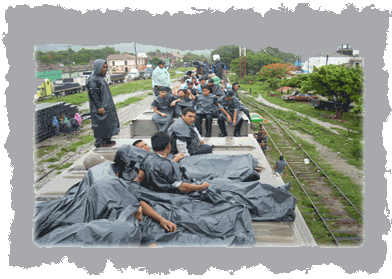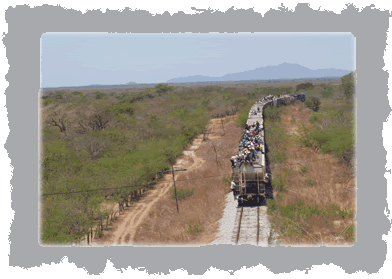When Will The Killer Of Brad Will Be Brought To Justice?
The New York Times today reports that the person held by Oaxaca authorities-- a person who clearly was not involved in the crime-- for the murder of Brad Wills in 2006 has finally been released from custody. That means that the investigation of the murder will now go back to the AG's office. But is it too late, has too much time been wasted for the real murderer to be brought to justice? Has this distraction been the end of the "investigation"?
The Times reports:
So who was it that the authorities held? And what, if anything, was his connection with the case? Or was he just somebody to hold so the real killers might remain hidden and any trail might grow cold?
The way this murder investigation has been handled is just disgraceful.
The Times reports:
The man accused of killing a New York City journalist as he videotaped street clashes in Oaxaca in 2006 was released from jail on Thursday after an appeals tribunal declared that there was no evidence against him.
The ruling was congruent with what the victim’s family and human rights groups have long asserted, that the journalist, Bradley Roland Will, was not shot at close range by an antigovernment protester as the government has maintained.
But the decision now leaves the case open, more than three years after Mr. Will was shot...
Under Mexican law, the investigation goes back to the attorney general’s office, said Miguel Ángel de los Santos, a Mexican lawyer for the Will family. “Until now there hasn’t been any proof,” he said. “What we hope is that they open other lines of investigation.”
The attorney general’s office said Thursday night that it had no comment on the release of the suspect or whether it would pursue further action in the case.
So who was it that the authorities held? And what, if anything, was his connection with the case? Or was he just somebody to hold so the real killers might remain hidden and any trail might grow cold?
The suspect, Juan Manuel Martínez Moreno, a baker and an activist with the coalition opposed to Gov. Ulises Ruiz, was arrested 18 months ago and accused of shooting Mr. Will at close range.
But photos and video of the scene show armed men, believed to government-backed agents, firing into the crowd of demonstrators from a distance. That account has been confirmed by other journalists who were with Mr. Will when he was killed on Oct. 27, 2006. A review of the forensic evidence by Physicians for Human Rights also found that the bullet had probably not been fired at close range.
Although Mr. Martínez took part in the protests, there was no evidence placing him at the scene of the shooting, human rights groups said. Nor, they said, did the government explain why Mr. Martínez would want to kill Mr. Will, who was sympathetic to the protesters’ cause.
The way this murder investigation has been handled is just disgraceful.
Etiquetas: Brad Will, mexico, oaxaca, travesties of justice







